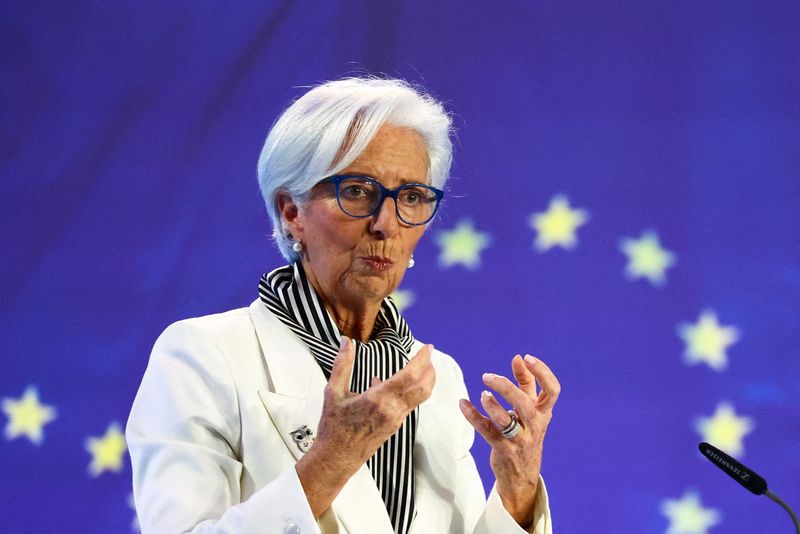FRANKFURT/MADRID (Reuters) - Euro zone inflation is heading back towards the 2% target but the European Central Bank still needs more confirmation before it can cut rates, two influential policymakers said on Thursday.
The ECB has kept interest rates unchanged at a record high since September and has been pushing back on rampant rate cut talk among investors, arguing that crucial data, particularly about wages, is still missing.
"The latest data confirms the ongoing disinflation process and is expected to bring us gradually further down over 2024," ECB President Christine Lagarde told a European Parliament hearing in Brussels.
"The current disinflationary process is expected to continue, but the Governing Council needs to be confident that it will lead us sustainably to our 2% target," Lagarde added, repeating the ECB's now standard message.
That message was echoed by Spanish central bank Governor Pablo Hernandez de Cos, who said the next move was a cut but there was no hurry.
"The next move in interest rates is going to be a cut," de Cos said in Madrid. "We are not being explicit on when that will happen, I think there is some time left for that, but it is important to underline that the ECB's target is the 2% symmetric target."
If the ECB moved too quickly, inflation could rise again which might force the ECB into tightening again, a costly back and forth, Lagarde warned.
Markets now see 113 basis points of rate cuts this year, down from 150 basis points just weeks ago, accepting the ECB's concerted pushback against excessive policy easing bets.
Giving disinflation a boost, economic growth is now hovering around zero for the sixth straight quarter and Lagarde said activity would remain "subdued" in the near term.
Indeed, the European Commission on Thursday cut its euro zone GDP growth forecast to just 0.8% from 1.2%, which is only a marginal improvement on last year's 0.5% rise.
Still, the ECB keeps pushing back on rate cut bets, fearing that relatively quick nominal wage growth will push up inflation as workers look to recoup incomes lost to quick price growth.
"Wage growth continues to be strong and is expected to become an increasingly important driver of inflation dynamics in the coming quarters, reflecting tight labour markets and workers’ demands for inflation compensation," Lagarde said.

The ECB's own forward-looking wage tracker continued to signal strong wage pressures but figures do signal some levelling off at the end of last year, Lagarde argued.
Still, the ECB needed to see the outcome of wage deals to be struck in the first quarter of this year before it can be certain that income growth does not put undue upward pressure on prices.